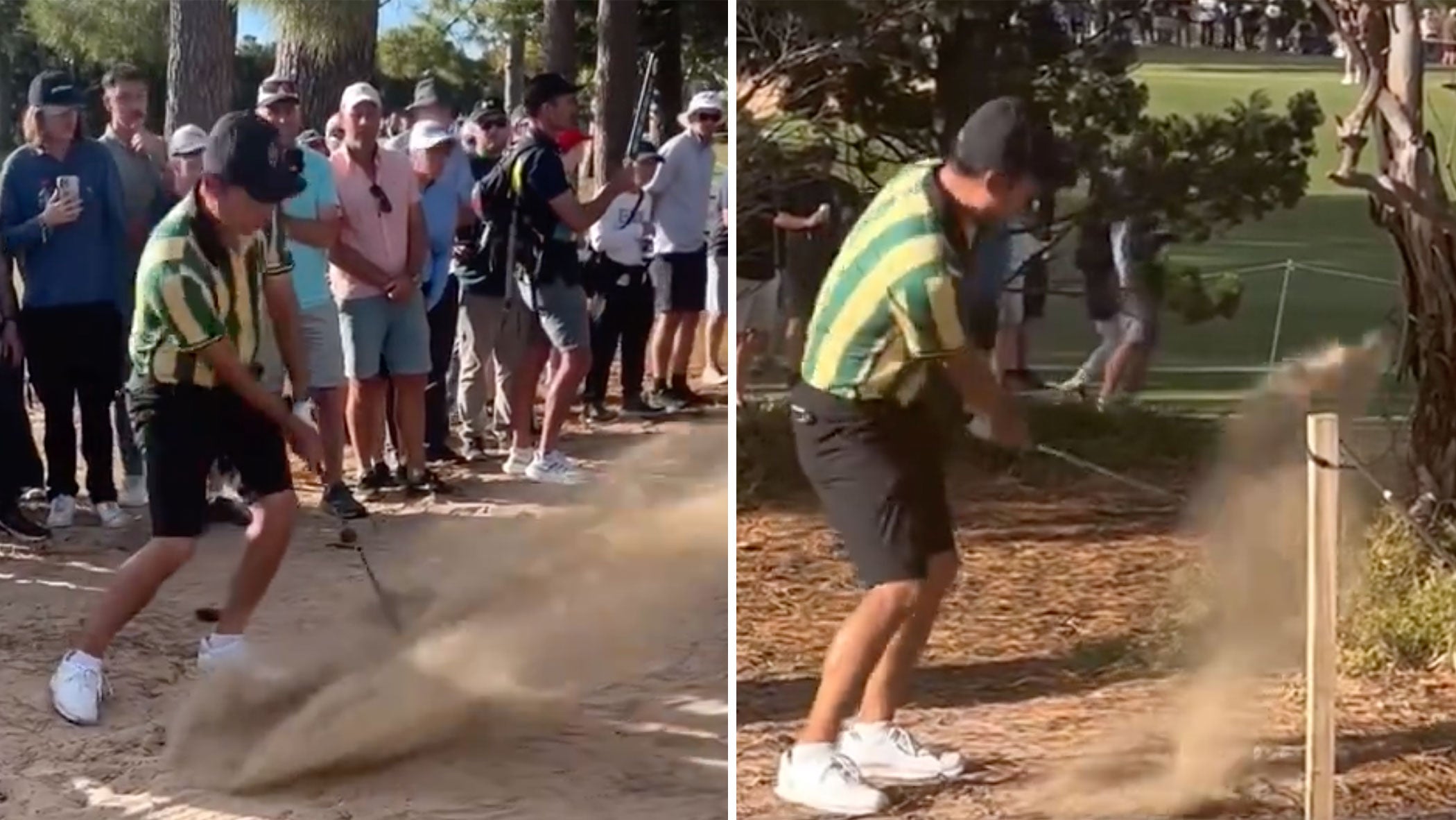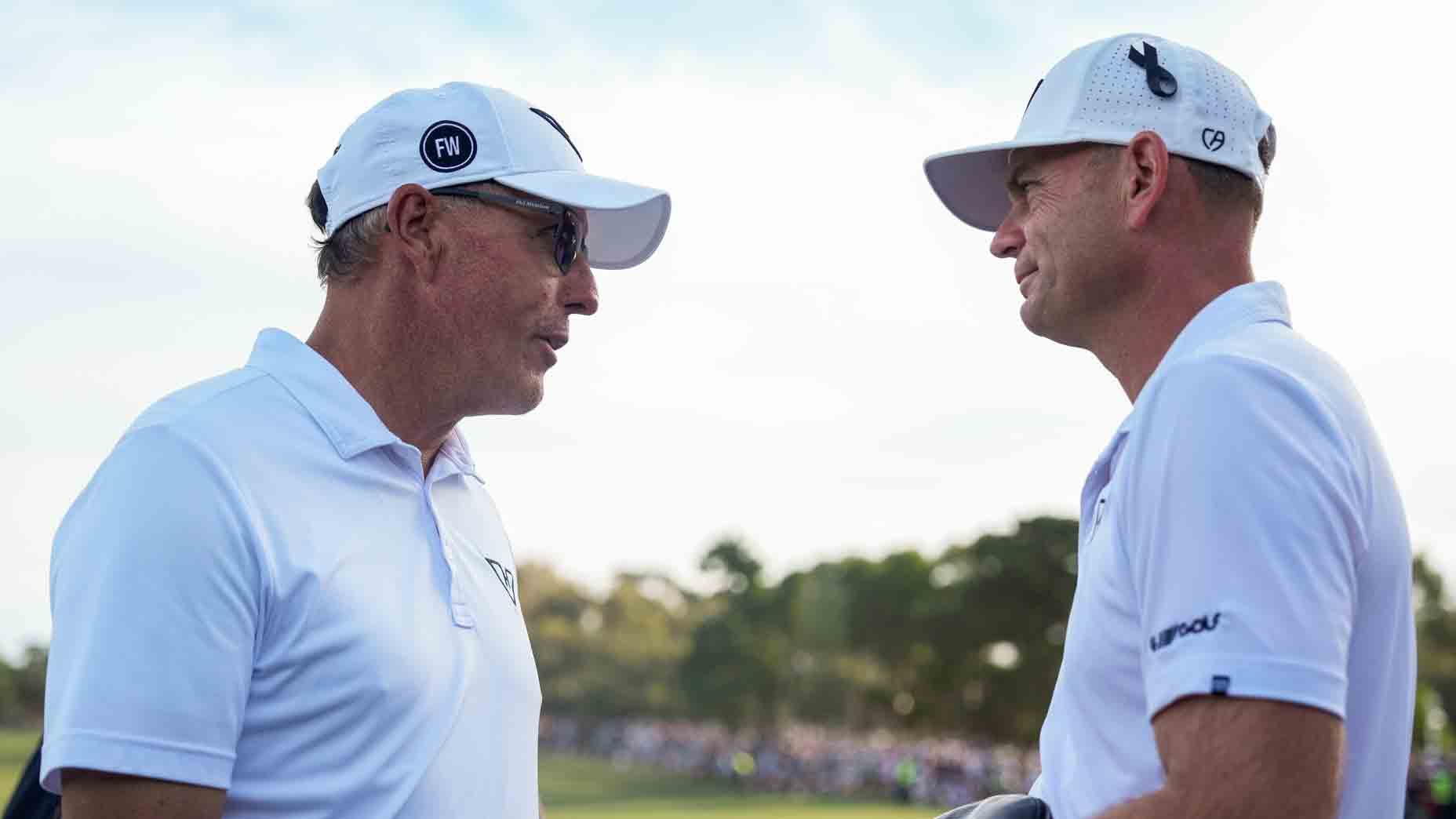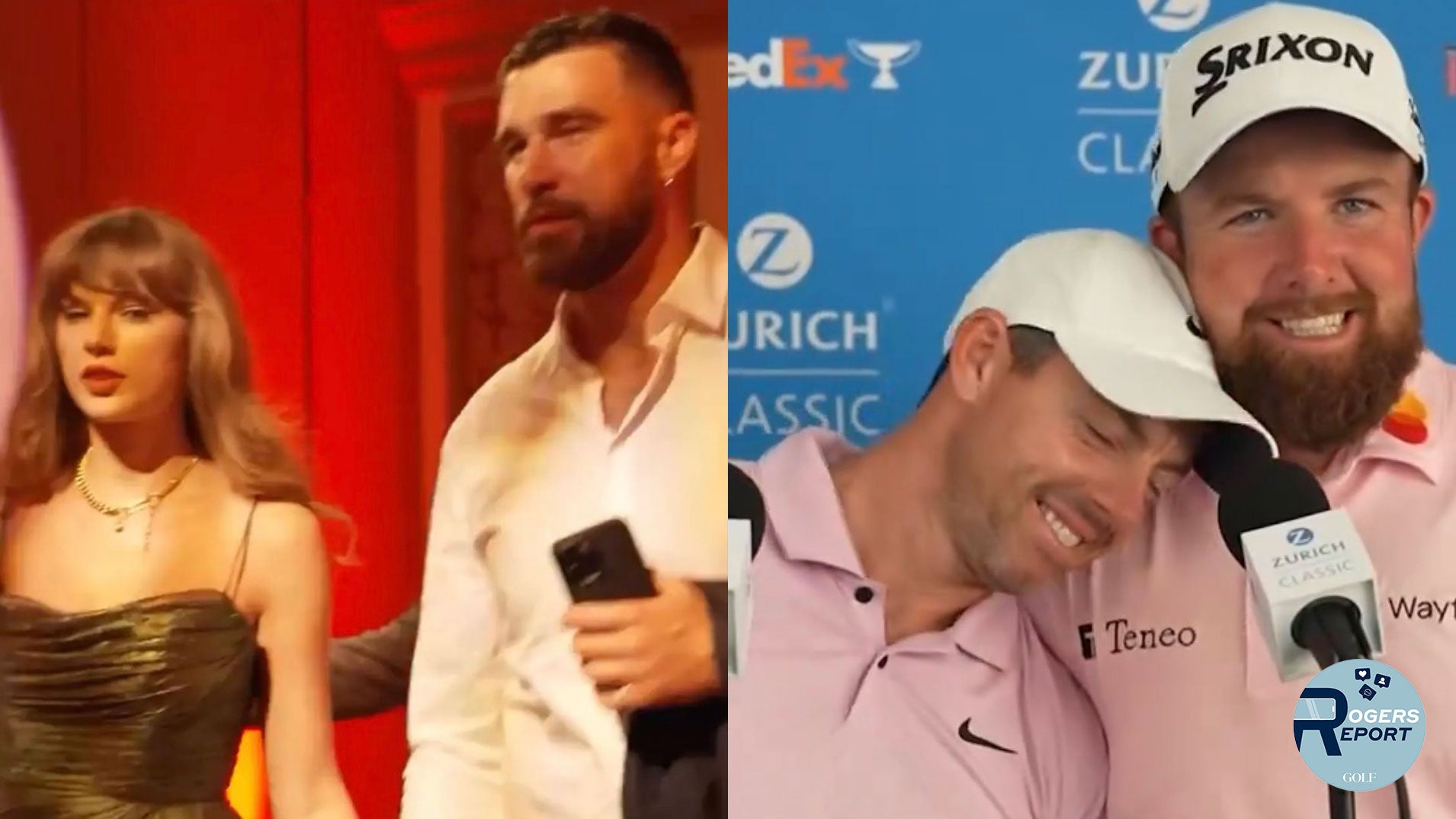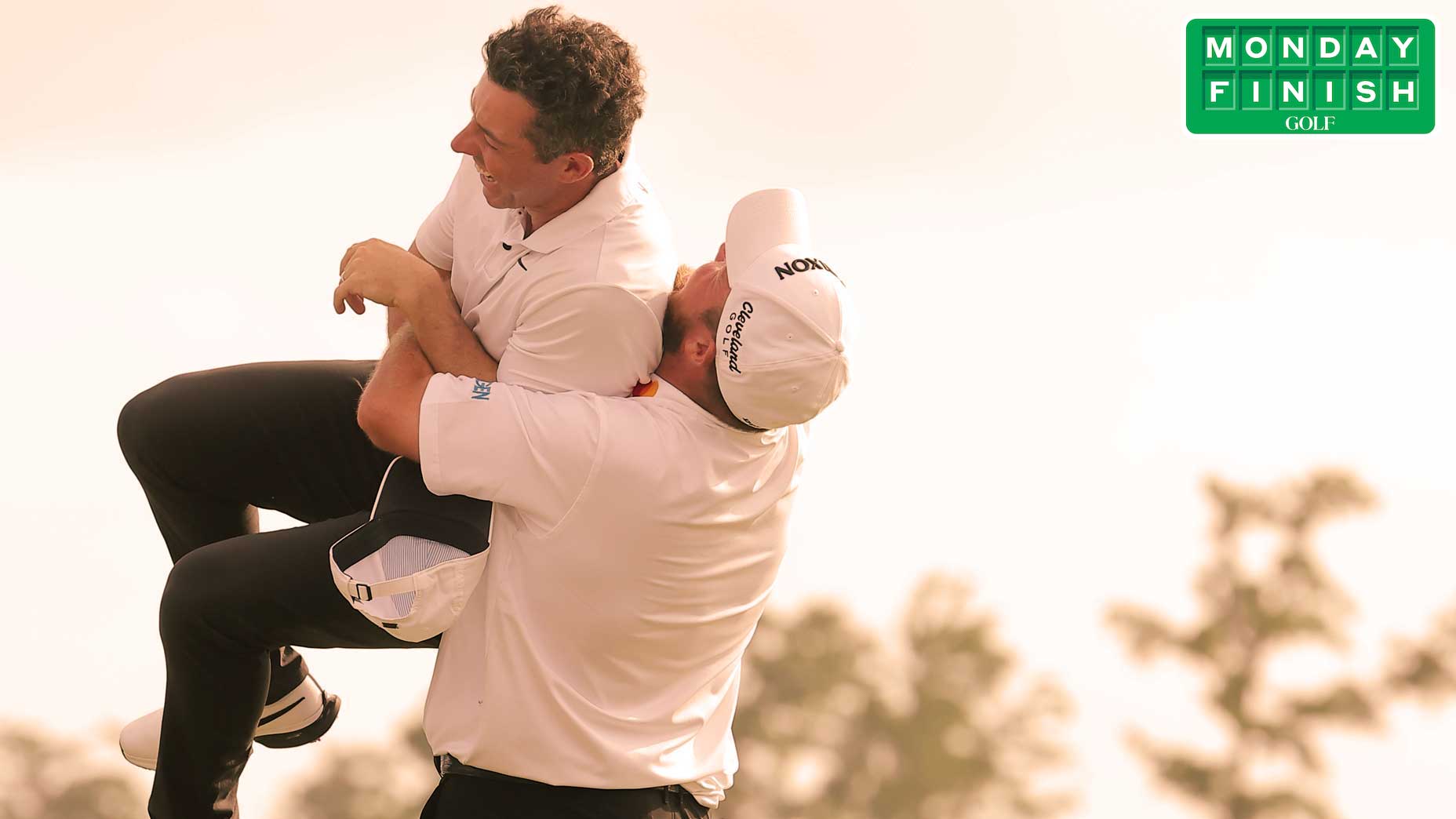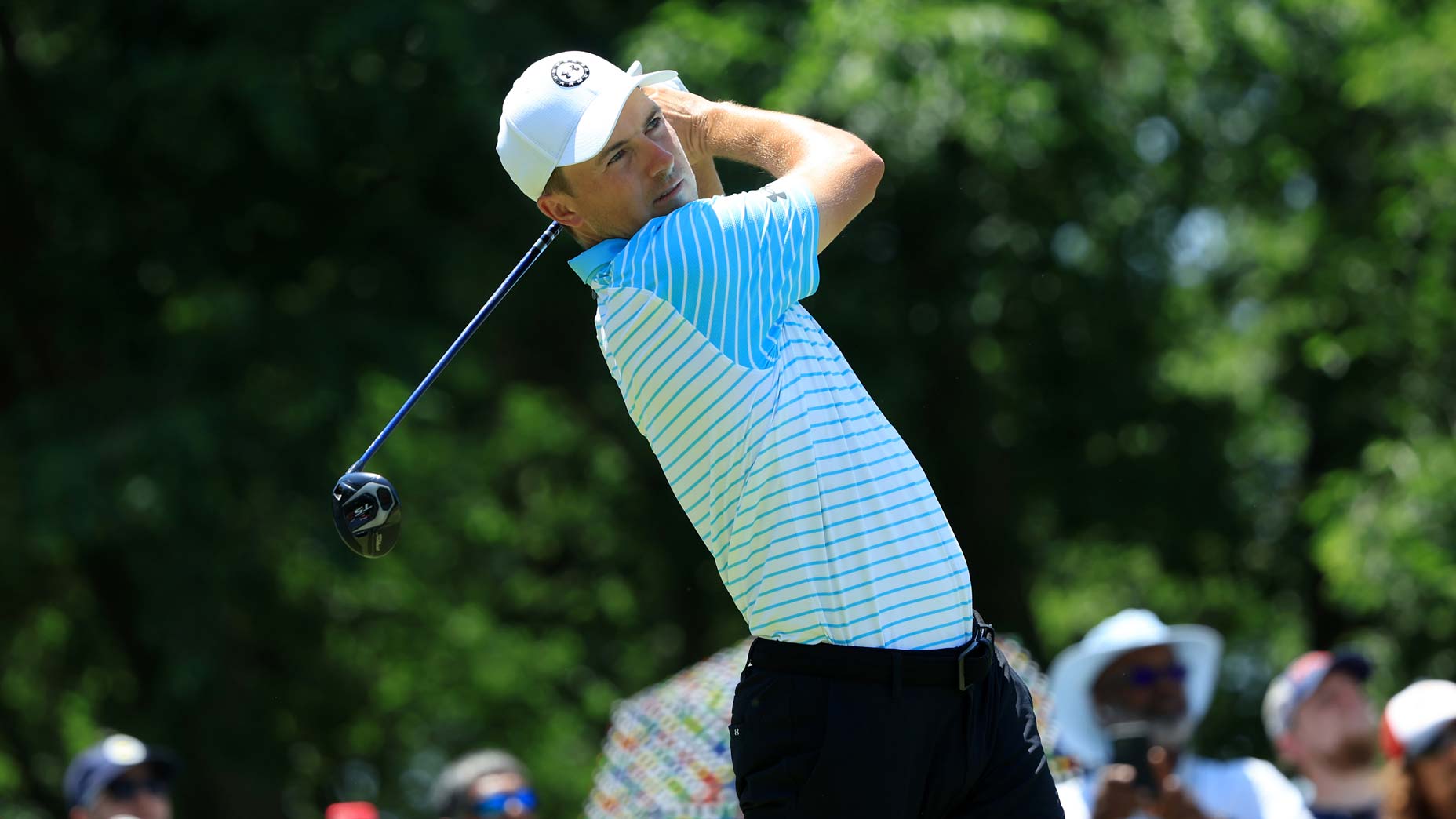This story originally appeared in an April 2015 edition of Sports Illustrated.
“Miguel, would you like some water?”
“My friend, water is for fish.”
He pours himself a tall glass of 10-year-old Bushmills whiskey.
“Don’t forget—your tee time is in 18 hours.”
Jiménez, 51, arches an eyebrow but says nothing. He opens a small metal case and produces a Cuban cigar, which he fires up with gusto.
“I come from a different generation,” Jiménez says. “And I’m not a hypocrite. I don’t hide the way I am. If I want to have a drink, I have a drink. Why shouldn’t I? Is it illegal to drink alcohol? Is tobacco illegal? So why should I care if people see me smoking? I do what I do out in the open. If people have a problem with that they can stick their tongue up their ass and let the rest of us do what we want to do. You can quote me exactly the way I said that.” He cracks an impish smile. “And what else do you want me to tell you?”
“Your opinions about life, love, golf….”
“I love golf like I love life. I enjoy a good meal. A good bottle of wine. Being in the company of my friends and my family. All that is critical. That’s what gives life meaning. Life is not being born and dying—it’s about what happens in between. This is what I am doing: living, playing golf, enjoying all that surrounds it.”
A statuesque blonde appears, holding four sweating bottles of beer. It is Jiménez’s wife, Susanne, a decade his junior, whom he met at a tournament in her native Austria in 2011 (a year after his divorce from his first wife, Montserrat). They married last year.
“She was on the course watching the golf, and she followed us for eight holes,” Jiménez says. “At one point I leaned over and said to my caddie, ‘I see a beautiful blonde over there, wearing nice pants with a beautiful ass. I want to know exactly where she is on every part of the golf course.’ I would be waiting for my turn to hit, and I’d look over at her. Our eyes locked for a moment, and I smiled. And she smiled back. When I went to the driving range, I saw her there and we started talking—in English!”
“How does she keep you young?”
“More than 50 years since I was born,” Jiménez says, then points a finger southward, “but I’m only 20 down there.”
Jimenez is in the conversation with Sam Snead, Tom Watson and Hale Irwin as the best “old” golfers in history. In winning the 2014 Open de España, his 21st European tour victory, he extended his record as the oldest man to win on that circuit. In January, just after turning 51, Jiménez prevailed at the Champions tour season opener in Hawaii. On the Euro tour this year he has two top 10 finishes, and he is holding steady at 69th in the World Ranking.
“Are you feeling your golfing mortality?”
“I’m not dead!” Jiménez says, voice rising. “I still feel competitive. I am still competing. I have to say one thing: What I appreciate the most is that I have spent more than half my life playing on the tour. And I’ve played with Nicklaus and Player, with Palmer, with Seve. I’ve played with Tiger and Rory, with all different generations. And I have seen all kinds of golf. I can say that I identify more with the old style than the new. I move the ball left to right and right to left—more like the way of the artist. The modern game is more about power. Of course I respect that too, because it is also an art to hit the ball so far.
“I love having played through all of this golf history, having been a part of so much golf history. And that’s something I carry inside of me. When I play with these young boys and I see how they hit the ball, I know that my strength is not their strength. My muscles do not work the same. I cannot match their distance. I don’t recover as quickly as they do. And the path they have to walk is much longer than the path I have left to walk. But I still have a path to walk. Always. So when you tell me I’m dead, well, you are completely wrong.”

Jiménez’s colleagues rave about him, but, interestingly, each cites a different part of his game when asked to identify a favorite.
Joost Luiten: “His short game and wedge game inside 100 yards is unbelievable—he’s deadly.”
Graeme McDowell: “I love how aggressive he is. Anytime I’ve played the Ryder Cup with him, he’s such a great partner because he goes at every flag. He plays golf on the edge, which takes a lot of courage.”
Martin Kaymer: “He is very good with his fairway woods—that is always something to see. He’s not the longest hitter anymore, so when we play with him he’s always a little behind us, but he still hits it closer because he’s so good with those clubs, especially his 5-wood.”
Paul Casey: “He putts it brilliantly. He hasn’t tried to find a magic secret through the years—he has stuck with what he does best, and I really respect him for that. As for his attitude, he’s like the original matador, Seve: They share this passion and flamboyant nature, but deep down, they’re pit bulls. There’s a grittiness. Behind the ponytail and the cigar, Miguel’s a very tough individual.”
“I started playing golf when I was 15,” Jiménez says. “When I turned 18 I did my military service, and after that I decided I wanted to play golf for a living. I joined the tour when I was 25. I wouldn’t play this long if I didn’t love it. I love competition. That’s probably the biggest reason I keep playing. And so I have no trouble getting up every morning to train, to practice, to do what I love to do. These are the things that people don’t see.
“If you knew me 20 years ago, you would not see the calm guy who stands before you today. That comes with years of experience. When I started to play golf, I was nervous. When I had nothing and I was coming from nothing, I had a lot of pressure every time I competed. What I learned is that in order to succeed you always have to set distant goals. My brother Juan once told me, ‘If you put a wall up in front of you, you can only see a short distance and you’ll have a very short path to walk.’ The farther away you set your objectives, the longer the path you will be able to walk. I still have big goals. That’s why I keep working. Winning a major championship would be a magnificent crown to my career.”
“What else motivates you? Money?”
“For me money is just something you need to live well. But it’s not going to make you happier. You are happy when you do things in life that you like. Money helps, but it’s a means to an end. Amassing money for its own sake is meaningless to me. I make it to use it. I like Ferraris so I buy Ferraris. I wanted to build a golf academy so I did. I like to do things.”
The escuela de Golf Miguel Angel Jiménez is in Torremolinos, Spain, near Jiménez’s hometown of Málaga.
“I built a pitch-and-putt, a par-3 hole and a driving range,” he says. “To make golf more accessible to people. It’s not a cheap sport, and I want more folks to be able to enjoy it. This project is very demanding, both financially and organizationally. But it’s coming along. I have good people in place, and I oversee it closely.”
“Are your sons into golf?”
“Oh, yes, they have the poison in their blood. Miguel Angel [20] is studying and playing golf at university in Fort Lauderdale [Nova Southeastern], and Victor [16] studies English and plays golf at an academy in Málaga. The first thing they say when they see me is, ‘Dad, let’s go play.'”
“Do they have any game?”
“They’ve got everything. They always hear me talk about moving the ball strategically, but they want to hit it hard, like all kids. They want to massacre the ball. Bust it open. But it takes more than that to beat me.”

Jiménez’s sons accompany him to all of the major championships. After rounds they traditionally exchange kisses on the cheek, and the boys often can be seen walking with an arm draped around their father’s shoulders.
“Look, I will help them all I can to get them going, but they have to make their own paths,” the old man says. “I carved out my own path. I give them the clubs and the balls, but they have to play the game themselves.”
As a patriarch of European golf, Jiménez seems a natural to someday captain a Ryder Cup team. For 2016 the position came down to Jiménez and Darren Clarke, with the Northern Irishman getting the nod.
“I’m not disappointed, I’m happy for him,” Jiménez says of Clarke. “But I hope my turn is next because I am not getting younger.”
There were intimations in the European press that Jiménez’s spotty English might have hurt his candidacy, given how much the captains must interact with the global golf media. The bulk of this conversation was conducted in Spanish, but here Jiménez switches to English.
“You understand me, right? O.K. then. The Ryder Cup is decided by the players’ clubs, not the captain’s English.”
He spoke these words last month in the shadow of the Augusta National clubhouse, having just shot a second-round 73 to miss the cut at the Masters. It was a stinging disappointment, given that Jiménez tied for fourth last year—his ninth career top 10 in a major—but he was typically upbeat.
“My score is s—, but I did not play s—. It happens. But my game feels good, I feel good about the rest of this season. The game will come. It always does.”
Beneath the famous oak tree at Augusta National he fell into the warm embrace of his sons and his wife and hugs from a dozen well-wishers. Before leaving the grounds Jiménez offered a parting thought:
“I am here with the sun shining, I’m surrounded by friends and family, tonight I will eat good food, drink good wine, smoke a good cigar and make love to my beautiful wife. It’s a good life, no?”
As he sauntered away, it was hard not to think of the words of Rickie Fowler, Jiménez’s playing partner last year at Augusta: “Everyone loves him because he is who he is. He’s not trying to be anyone he’s not.”
Jiménez is fond of a famous stanza by Antonio Machado, the Spanish poet: “Caminante, no hay camino/Se hace el camino al andar.”
Jiménez offers his own translation:
“Traveler, there is no path. You forge the path with your footsteps.”


